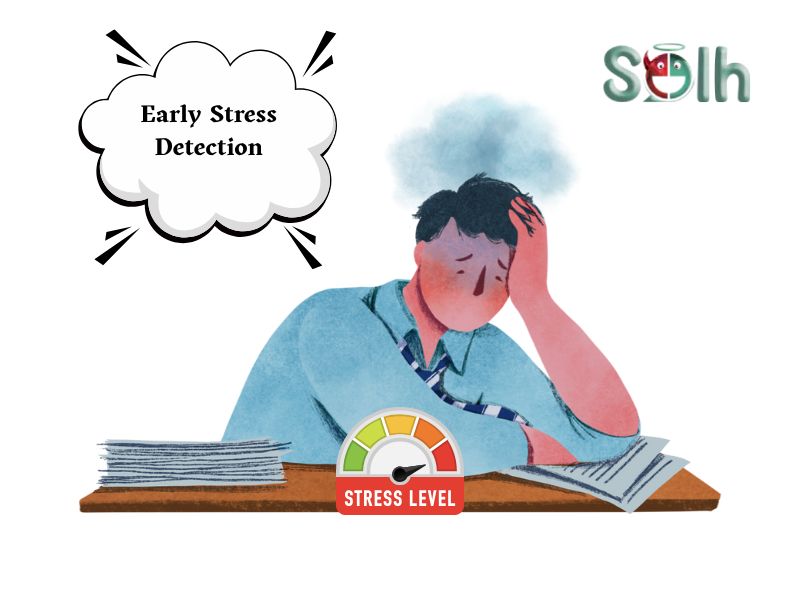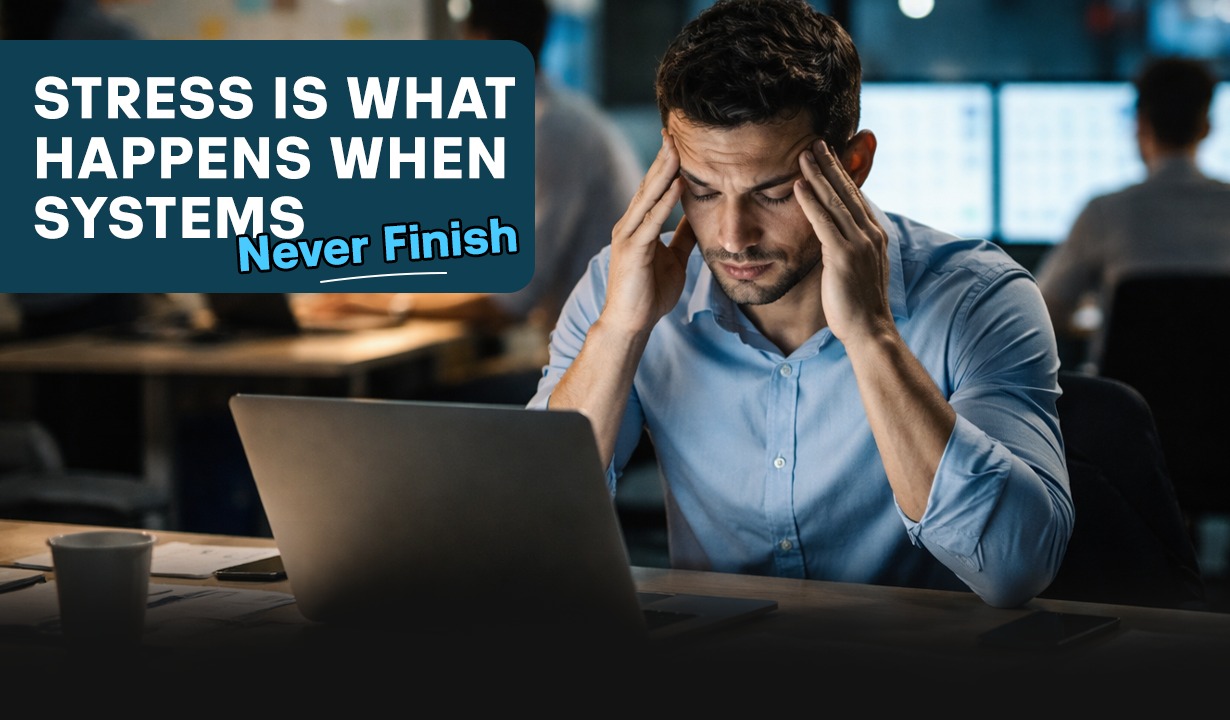We humans have a strange addiction—we don’t act until the damage is visible, permanent, or painful enough to scream for attention. Warning signs get ignored, symptoms get laughed off, and only when life feels like a car crash in slow motion do we finally look for “help.”
This is the myth we’ve built around stress: instead of practicing Early Stress Detection, we romanticize breakdowns, glorify the phoenix-rising-from-ashes story, and convince ourselves that hitting rock bottom somehow makes us stronger. Reality check—rock bottom isn’t transformation. It's a trauma. And trauma doesn’t build you up, it scars you forever.
Meanwhile, our culture keeps glorifying hustle while quietly burying the fallout of stress under Instagram quotes and coffee mugs that say “Keep Going.” But stress doesn’t suddenly explode one day—it builds up slowly, silently—until your body, your mind, or your relationships collapse under the weight. By the time most people “wake up,” they’re already at rock bottom.
And let’s be clear: rock bottom is not a badge of honor. It’s a failure of early stress detection.
That’s exactly why Solh exists, for AI stress management. Not to hand you tissues after burnout, but to monitor, measure, and manage stress before it becomes chronic. Because stress isn’t abstract—it’s quantifiable, trackable, and preventable.
Stress is the New Epidemic
Stress isn’t just “I’m busy at work” or “life is hectic.” It’s a biological response—your brain and body perceiving danger, staying in fight-or-flight mode long after the lion has left the cave. Modern life has weaponised stress. Instead of the occasional threat, we’re living in a constant simulation of crisis—emails, deadlines, financial insecurity, family issues, social media comparison, the constant buzzing of phones.
Chronic stress rewires your body. It spikes cortisol, ruins your sleep, destabilises blood sugar, increases heart risks, and pushes you into anxiety, depression, and substance dependence. Left unchecked, stress doesn’t just make you “tired”—it slowly eats away your capacity to function, to think, to love, to live.
Yet society still treats stress like some “mental weakness.” Wrong. Stress is science. Stress is data. Stress is measurable.
And if it’s measurable, it’s preventable.
Innovation? Early Stress Detection.
Every industry already knows the value of early stress detection.
We don’t wait for a tumour to metastasise—we screen for cancer.
We don’t wait for a car engine to explode—we service it when the sensors light up.
But when it comes to stress?
We wait for people to collapse, suffer panic attacks, attempt self-harm, or destroy their relationships before we acknowledge the problem.
That’s insanity. And it’s also an opportunity.
At Solh, we said: enough with patchwork sympathy.
The future of mental wellness cannot be reactive. It must be predictive and preventive.
Because stress doesn’t need another motivational quote—it needs measurement, monitoring, and management.
We don’t clap for cars because they have airbags. We clap when they have brakes that prevent the crash. Stress needs the same thinking.
That’s exactly why we built REACH AI—a system that detects stress in real time and guides you toward meaningful action.
Building Resilience through EACH
- E – Evaluate: Real-time stress detection, no sugar-coating.
- A – Act: Personalised nudges, not generic gyaan.
- C – Connect: People, programs, and professionals who get it.
- H – Heal: Sustainable strategies, not quick-fix band-aids.
This isn’t therapy that waits till you’re broken. This is AI-driven precision that says, “You’re about to crash—fix it now.”
And For Those Already Down There?
But let’s not be blind here. A large part of society is already drowning because lack of early stress detection. For many, stress didn’t stop at sleepless nights or irritability—it spiraled into addiction. Alcohol, drugs, gaming, even compulsive scrolling—it’s all the same beast. Self-medication to mute stress until the self doesn’t exist anymore.
That’s why we created Prarambh Life (PL). Because sometimes, the only way forward is a restart. But restart doesn’t mean punishment. PL is not about shoving people into a detox room and throwing away the key. It’s about dignity, about building life 2.0. Structured recovery programs, community support, and holistic approaches that treat addiction as what it is: a consequence of unaddressed stress, not a moral failing.
PL is hope for those who already fell. REACH AI is armor for those still standing. Together, they create a continuum of care—because mental health is not a one-size-fits-all journey.
The Future is Not Motivational Posters. It’s Measurable Mental Wellness.
Here’s the truth nobody wants to admit—rock bottom is not destiny, it’s a choice: a choice to ignore, to postpone, to glamorise suffering. Real innovation lies in early stress detection—refusing to wait until you’ve lost your job, your health, your family, or your will to live, and instead saying, “I will not crash just to prove I can rise again.” That’s what Solh stands for, what REACH AI delivers, and what PL rebuilds: turning stress into data, into patterns, into action. Because stress won’t stop knocking, and the real question is—do you want to keep answering at rock bottom, or start responding early, building a life where collapse is never an option?



